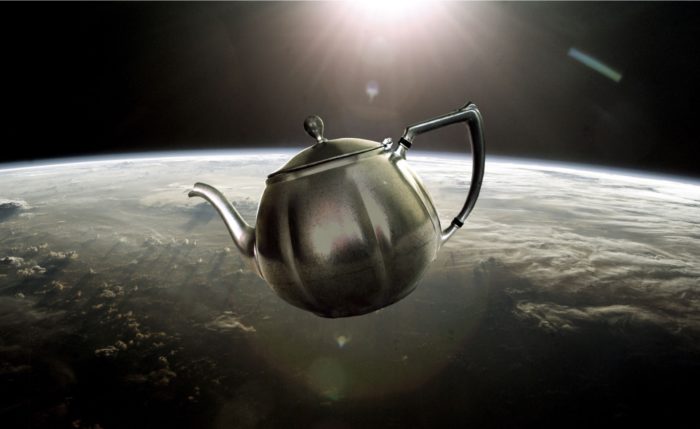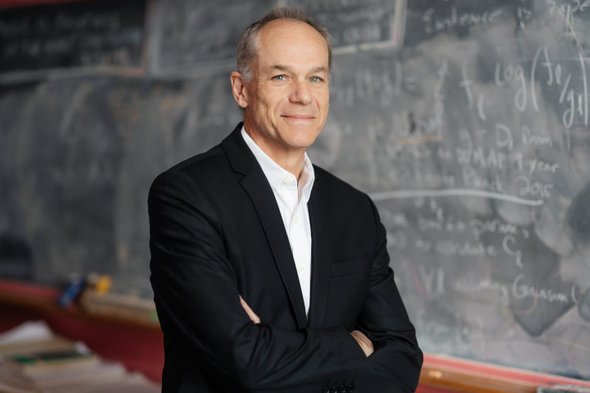Feb
25
2010
One of the strengths of the skeptical movement, as an intellectual community, is that we wrangle with important issues regarding the relationship between science and what people do and should accept as probably true. We deal with not only specific issues, but the bigger question of process. For example – how much weight should an individual give to any specific scientific consensus, and is this just an argument from authority?
This question has recently become central to the debate over climate change – one of those few scientific debates that fractures the skeptical community. We are fairly united when it comes to the question of ghosts, Bigfoot, and UFOs. But when certain topics come up, like climate change, there is disagreement over the meaning of consensus, what the consensus is, and the very definition of “skeptic”.
Consensus vs Authority
Deferring to the scientific consensus on a given topic is not the same thing as making an argument from authority – a logical fallacy to be avoided. The argument from authority essentially follows the pattern of concluding that a claim is true because it is being made by a person of some authority (scientific or otherwise). Most of us spend our childhood committing this logical fallacy – the right answer is whatever an adult says it is, or the teacher, or whatever the news reports “scientists” are saying.
Continue Reading »
Mar
12
2009
Today Bernie Madoff pleaded guilty to the largest case of financial fraud in history. He was taken to jail in handcuffs and will likely spend the rest of his life in prison for pulling off a $65 billion Ponzi scheme. The tendrils of his deception have touched numerous people and organizations – wiping out personal fortunes, bankrupting charities, and probably leading to two suicides. Madoff is guilty of monumental sociopathic fraud.
But there is perhaps a bigger fraud story in the news this week also – not bigger in dollars but in the betrayal of trust. Anesthesiologist Scott S. Reuben, MD, of Baystate Medical Center in Springfield, MA is being accused of fabricating data on 21 published studies.
The Fraud
Reuben has been a leading researcher into what is called multimodal analgesia, specifically for post-operative pain management. Essentially, rather than simply sedating patients with narcotics, Reuben advocated using non-steroidal antiinflammatory analgesics (NSAIDS, or aspirin-like drugs) and neuropathic pain agents, like pregabalin. His published research showed the efficacy of this multimodal approach, which has been widely embraced.
Continue Reading »
Oct
28
2008
My posts from last Thursday and Friday on materialism sparked an unusual amount of activity in the comments, which is always great. There is much great discussion and links to further reading. But I feel I did not make my position clear enough, and a longer clarification than is appropriate for the comments is needed.
Much of the confusion and disagreement seems to revolve around definitions – it is difficult to find common ground when people are using different specific definitions for the same words. This is a common problem in philosophy, which seems to multiple terms with subtle distinctions, and has been further magnified by the fact that I was partly confronting how other people (like ID proponents) are using terms, vs how philosophers define them, vs how the public perceives them. Confusion ensued.
Although this is probably obvious, I want to say for the record that I am not a philosopher. I am a scientist trying to understand philosophy as it pertains to science and skepticism. This probably causes as many problems as philosophers who are not scientists trying to understand the philosophy of science.
So as I crawl back through this discussion of methodological naturalism and materialism I will try to be careful about defining terms and in which context.
Continue Reading »
Apr
23
2024
 The most recent episode of John Oliver, Last Week Tonight, featured a discussion of the UFO phenomenon. I’m always interested, and often disappointed, in how the mainstream media portrays skeptical topics. One interesting addition here is that Oliver actually referenced an SGU episode, the one in which we interviewed Jimmy Carter about his UFO sighting. Unfortunately the rest of the episode was a bit of a let down.
The most recent episode of John Oliver, Last Week Tonight, featured a discussion of the UFO phenomenon. I’m always interested, and often disappointed, in how the mainstream media portrays skeptical topics. One interesting addition here is that Oliver actually referenced an SGU episode, the one in which we interviewed Jimmy Carter about his UFO sighting. Unfortunately the rest of the episode was a bit of a let down.
Oliver is the first to acknowledge that he is not a journalist. He’s a comedian. But comedians often give biting satire of our culture and society, and Oliver has developed a specific niche. He essentially picks a topic and makes the point that – we’re doing it wrong, we can do better. Oliver also has a staff of researchers, so he is not jut making stuff up or giving superficial observations. In general I find he does an excellent job, giving a descent overview of a topic and making important observations. But of course many of the topics he covers are too complex to do justice in a 20 minute comedy routine, but he usually manages to hit the important points.
His piece of UFOs was very typical of his general approach. All storytellers (whether you are a journalist, blog writer, or comedian) have a narrative, some organizing point or argument that you are making. Otherwise a piece is just a list of facts or assertions. Oliver’s series has a narrative (as I said, we’re doing it wrong), and each episode has a narrative within that framework. For the UFO piece his main narrative was that the US government is doing UFO research wrong, and this is being driven by the underlying fact that most people interested in UFOs fall into one of two groups, true believers or hardline skeptics. True believers will believe anything, no matter how ridiculous, and hardline skeptics just roll their eyes dismissively, chilling genuine research.
Continue Reading »
Apr
22
2024
I recently received the following question to the SGU e-mail:
“I have had several conversations with friends/colleagues lately regarding indigenous beliefs/stories. They assert that not believing these based on oral histories alone is morally wrong and ignoring a different cultures method of knowledge sharing. I do not want to be insensitive, and I would never argue this point directly with an indigenous person (my friends asserting these points are all white). But it really rubs me the wrong way to be told to believe things without what I would consider more concrete evidence. I’m really not sure how to comport myself in these situations. I would love to hear any thoughts you have on this topic, as I don’t have many skeptical friends.”
I also frequently encounter this tension, between a philosophical dedication to scientific methods and respect of indigenous cultures. Similar tensions come up in other contexts, such as indigenous cultures that hunt endangered species. These tensions are sometimes framed as “decolonization” defined as “the process of freeing an institution, sphere of activity, etc. from the cultural or social effects of colonization.” Here is a more detailed description:
“Decolonization is about “cultural, psychological, and economic freedom” for Indigenous people with the goal of achieving Indigenous sovereignty — the right and ability of Indigenous people to practice self-determination over their land, cultures, and political and economic systems.”
I completely understand this concept and think the project is legitimate. To “decolonize” an indigenous culture you have to do more than just physically remove foreign settlers. Psychological and cultural colonization is harder to remove. And often cultural colonization was very deliberate, such as missionaries spreading the “correct” religion to “primitive” people.
Continue Reading »
May
01
2023
 I was interviewed recently for a Daily Beast article on recent research involving the Institute of Noetic Sciences (IONS). Overall the article is very good, and author Maddie Bender was fair and reasonable in how I was quoted. I can’t always take that as a given. No matter how careful you are, a lot can be done with the edit and perfectly reasonable statements can be framed in a positive or negative light. It all depends on what story the author is writing.
I was interviewed recently for a Daily Beast article on recent research involving the Institute of Noetic Sciences (IONS). Overall the article is very good, and author Maddie Bender was fair and reasonable in how I was quoted. I can’t always take that as a given. No matter how careful you are, a lot can be done with the edit and perfectly reasonable statements can be framed in a positive or negative light. It all depends on what story the author is writing.
In this case the story was about how fringe science and even pseudoscience can infiltrate mainstream academic institutions. There is a lot of nuance to this topic, because as with many such things there is a demarcation problem. As I have discussed many times before, for example, there is a demarcation problem between science and pseudoscience. There is no sharp line between the two, but a smooth transition. Much mainstream science can fall short in terms of rigorous methodology, and not all pseudoscience gets everything wrong. But that doesn’t mean there isn’t pseudoscience (that would be the false continuum logical fallacy) – get far enough to one end of the spectrum and you are in the realm of pseudoscience.
Academic institutions have another demarcation problem to deal with – academic freedom. This one is perhaps even trickier, because it is critically important that academics have the intellectual freedom to explore new and unpopular ideas, even ones that may be considered “dangerous”. As I have also written before, I have no problem with researchers exploring new ideas, fringe ideas, even weird ideas, as long as they are being true to scientific philosophy and methodology, and not making claims that go beyond the evidence. Further, this means that pseudoscience is not an area of study, but a set of behaviors. You can be doing pseudoscience when studying mainstream claims, or rigorous science when studying the paranormal. It’s the method and logic that matter. For example, Richard Wiseman has done rigorous investigations of the paranormal. I would never call him a pseudoscientist.
One of the core features of doing pseudoscience is assuming that your claim (paranormal or otherwise) is true and then working backwards from that assumption. This leads to performing research to show that the phenomenon is true, or perhaps how it works, but not doing research capable of determine if it is true. This brings us back to IONS and the Daily Beast article. The article focuses on neuroscientist Spiro Pantazatos and his collaboration with IONS, looking for brain regions that might correlate with specific paranormal phenomena. My problem with this research is that is assumes various paranormal phenomena are real, when that has not been scientifically established. In fact, as I point out in the article, we have over a century of research which has failed to demonstrate psi phenomena (ESP, clairvoyance, telekenesis, etc.) to point to. This is not some new idea that has never been explored.
Continue Reading »
Nov
11
2021
 While the world debates how best to reverse the trend of anthropogenic global warming (AGW), scientists continue to refine their data on historical global temperatures. A recent study published in Nature adds to this a high resolution picture of average surface temperatures over the last 24,000 years, since the last glacial maximum. The study reinforces the conclusion that the last century of warming is unprecedented over this time frame, and does not reflect any natural cycle but rather the effects of human forcing.
While the world debates how best to reverse the trend of anthropogenic global warming (AGW), scientists continue to refine their data on historical global temperatures. A recent study published in Nature adds to this a high resolution picture of average surface temperatures over the last 24,000 years, since the last glacial maximum. The study reinforces the conclusion that the last century of warming is unprecedented over this time frame, and does not reflect any natural cycle but rather the effects of human forcing.
To construct their map of past temperatures, the researchers combined two methods. They used a dataset of chemical analysis of marine sediments, which are affected by local average temperatures. They combined this with a dataset based on computer-simulated climate models. The idea was to leverage the strengths of each approach to arrive at a map of historical surface temperatures that is more accurate than either method alone.
Of course, no one study is ever the final word, but this reconstruction is in line with other research using independent methods and data. The authors also draw two other main conclusions from their data. There has been a debate about whether or not the last 10,000 years had a small warming trend, and this graph supports that conclusion. Further, the authors conclude that the main driver of the large warming trend starting around 17,000 years ago is the retreat of the glacial ice sheets, but that the main driver of the rapid warming over the last 150 years is increasing green house gases. The rate of this recent warming is also out of proportion to any natural cycle detected in the last 24,000 years.
Continue Reading »
May
23
2019
A Reddit thread in the Skeptic subreddit is framed as criticism toward skeptical philosophy. The questions it raises are all important, and honestly the poster should have just framed his points as questions rather than criticisms, because they reflect not problems with skeptical philosophy but their poor understanding of it. So the first lesson here is – humility. Don’t assume that an entire field you don’t fully understand is wrong. Rather, start with the assumption that you have more to learn, and then let proponents make their best case.
in the Skeptic subreddit is framed as criticism toward skeptical philosophy. The questions it raises are all important, and honestly the poster should have just framed his points as questions rather than criticisms, because they reflect not problems with skeptical philosophy but their poor understanding of it. So the first lesson here is – humility. Don’t assume that an entire field you don’t fully understand is wrong. Rather, start with the assumption that you have more to learn, and then let proponents make their best case.
There are many good responses in the thread, which shows that a reasonable understanding of skeptical philosophy is out there in the community. The questions are very common beginner errors, and so they are worth responding to in detail. My first response, however, (as others in the thread have pointed out) is to begin with a basic text of the subject. Read a philosophy book. I humbly suggest The Skeptics’ Guide to the Universe, which is designed to be a primer on skeptical philosophy and directly addresses all of the poster’s questions. But there are many good books out there, and even basic philosophical books on epistemology will do (they don’t have to be explicitly skeptical).
I point this out because I frequently encounter people who are trying to do philosophy without even realizing it, or without an appreciation for the depth of philosophy as an intellectual field. Philosophy is one of those things that everyone thinks they can do, even without a lick of education on the topic. Inevitably they make basic mistakes, often ones that were dealt with thousands of years ago by the first philosophers. This would be no different than making pronouncements about a highly technical field of science without ever having studied it, and without really knowing the position of experts.
He begins:
‘Fact’ – What is a ‘fact’? Google search says: “a thing that is known or proved to be true”. Here is my problem: ‘known’…by whom? I am from India and have seen both villages and towns. Different things are ‘known’ in different communities. For example, people in rural areas ‘know’ there exists witches and ghosts.
This is a basic question of epistemology – how do we know anything, and what does it mean to know something? Here is also a pearl – don’t rely on essentially a dictionary definition for insight into a technical term or concept.
Continue Reading »
Apr
09
2019
 In 2017 Chinese scientists published a paper in the journal Chinese Acupuncture & Moxibustion titled, “Discussion on quantum entanglement theory and acupuncture.” There are several layers to the erosion of science that this paper represents. Fortunately the paper was recently retracted, for reasons the editors do not make clear. I suspect they were just embarrassed.
In 2017 Chinese scientists published a paper in the journal Chinese Acupuncture & Moxibustion titled, “Discussion on quantum entanglement theory and acupuncture.” There are several layers to the erosion of science that this paper represents. Fortunately the paper was recently retracted, for reasons the editors do not make clear. I suspect they were just embarrassed.
The first layer I would like to peal away is the use of quantum mechanics to essentially explain magic. The authors write (originally in Chinese – this is the bad translation):
After learning the quantum entanglement, the authors have found that many characteristics of quantum are reflected in TCM, acupuncture theory and clinical practice. For example, the quantum entanglement phenomenon is mutually verified with the holism, yinyang doctrine, the theory of primary, secondary, root and knot in TCM, etc. It can be applied to interpret the clinical situations which is difficult to be explained in clinical practice, such as the instant effect of acupuncture, multi-point stimulation in one disorder and the points with specific effects.
Let me parse that a bit for you. What they are essentially admitting is that there are several aspects to acupuncture that cannot be explained with actual science, by appealing to evidence, logic, or what has been established about how the human body actually works. One of those aspects is the “instant effect” that acupuncture often seems to have on patient.
In real life, it takes time for the body to respond to any intervention. There are some drugs that, when given intravenously, can have a very rapid effect. Otherwise it takes time for substances to get absorbed, be distributed to their targets, for cells to respond, to make proteins, to begin healing, etc. Depending on the effect and the mechanism of the intervention, an almost instant response to treatment may be physiologically impossible.
Continue Reading »
Mar
21
2019
 Marcelo Gleiser is an astrophysicist and science popularizer. I have not read any of his works previously and was therefore not familiar with him. He recently won the Templeton Prize, of which I am not a fan. The prize is for:
Marcelo Gleiser is an astrophysicist and science popularizer. I have not read any of his works previously and was therefore not familiar with him. He recently won the Templeton Prize, of which I am not a fan. The prize is for:
The Templeton Prize honors a living person who has made an exceptional contribution to affirming life’s spiritual dimension, whether through insight, discovery, or practical works.
Many past winners were given the award for trying to align science and religious faith, which to me is a hopeless cause. This usually results in an attempt to use science or philosophy to prove a particular religious belief, an endeavor that always fails. It’s fair to say, then, that I had negative expectations when I saw this headline in Scientific American:
Atheism Is Inconsistent with the Scientific Method, Prize-Winning Physicist Says.
Here we go, I thought, another Templeton Prize winner trying to disprove atheism. But I read the interview with an open mind to see what he actually had to say, reminding myself of the principle of charity. I was pleasantly surprised. I have to say I found nothing I could disagree with.
First, that headline is misleading (I know, shocker). Gleiser is not an atheist, but only because he is an agnostic. He explains that the notion of whether or not a god exists is beyond evidence, and therefore the only scientific opinion one can have is agnosticism. You cannot know that God, or any particular god, does not exist in a scientific way.
Continue Reading »

 The most recent episode of John Oliver, Last Week Tonight, featured a discussion of the UFO phenomenon. I’m always interested, and often disappointed, in how the mainstream media portrays skeptical topics. One interesting addition here is that Oliver actually referenced an SGU episode, the one in which we interviewed Jimmy Carter about his UFO sighting. Unfortunately the rest of the episode was a bit of a let down.
The most recent episode of John Oliver, Last Week Tonight, featured a discussion of the UFO phenomenon. I’m always interested, and often disappointed, in how the mainstream media portrays skeptical topics. One interesting addition here is that Oliver actually referenced an SGU episode, the one in which we interviewed Jimmy Carter about his UFO sighting. Unfortunately the rest of the episode was a bit of a let down. I was interviewed recently for
I was interviewed recently for  While the world debates how best to reverse the trend of anthropogenic global warming (AGW), scientists continue to refine their data on historical global temperatures.
While the world debates how best to reverse the trend of anthropogenic global warming (AGW), scientists continue to refine their data on historical global temperatures. 
 In 2017 Chinese scientists published a paper in the journal Chinese Acupuncture & Moxibustion titled, “
In 2017 Chinese scientists published a paper in the journal Chinese Acupuncture & Moxibustion titled, “ Marcelo Gleiser is an astrophysicist and science popularizer. I have not read any of his works previously and was therefore not familiar with him. He recently won
Marcelo Gleiser is an astrophysicist and science popularizer. I have not read any of his works previously and was therefore not familiar with him. He recently won 




